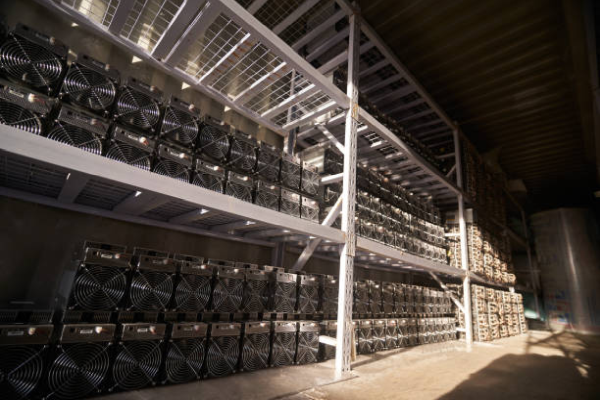Mining ban in Paraguay fails - free rein for Bitcoin miners!
10/1/2022, 07:39 AM

The growing popularity of Bitcoin has led to increasing interest in Bitcoin mining, both among individuals and businesses. In Paraguay, this has led to the introduction of legislation that would establish a regulatory framework for Bitcoin mining. However, President Mario Abdo Benitez has vetoed the bill, citing concerns about the high energy consumption and low employment benefits associated with Bitcoin mining.
Now, the bill is the subject of debate between the presidency and legislature, with some lawmakers arguing that the benefits of taxation and employment opportunities outweigh the risks. Foreign companies are already taking notice of Paraguay's potential as a Bitcoin mining haven, due to its abundant and cheap electricity. Given the disagreement, the bill will advance to Paraguay’s Chamber of Deputies where it will be debated before a final decision is made.
The new law gives the Paraguayan Ministry of Industry and Commerce the authority to punish any person or entity that uses cryptocurrency for mining or other services without the required permission. The Secretariat for the Prevention of Money and Asset Laundering will also oversee the investment process of crypto startups.
This was a huge step forward for the cryptocurrency industry in Paraguay, and will likely lead to more investment and growth in the sector. It was also a positive sign for the future of regulation of cryptocurrencies around the world.
Read more on TheStreet.com.
Now, the bill is the subject of debate between the presidency and legislature, with some lawmakers arguing that the benefits of taxation and employment opportunities outweigh the risks. Foreign companies are already taking notice of Paraguay's potential as a Bitcoin mining haven, due to its abundant and cheap electricity. Given the disagreement, the bill will advance to Paraguay’s Chamber of Deputies where it will be debated before a final decision is made.
The Paraguayan President is opposed to the regulation of a sector that wants to be regulated and is destroying the chance of attracting new investors.
Background ...
In July 2022, Paraguay finally laid the groundwork for regulation of all cryptocurrency-related activities, after the country's senators approved the proposed legislation. This was a much-anticipated move, as Paraguay had been one of the few countries without any regulations in place for cryptocurrencies.The new law gives the Paraguayan Ministry of Industry and Commerce the authority to punish any person or entity that uses cryptocurrency for mining or other services without the required permission. The Secretariat for the Prevention of Money and Asset Laundering will also oversee the investment process of crypto startups.
This was a huge step forward for the cryptocurrency industry in Paraguay, and will likely lead to more investment and growth in the sector. It was also a positive sign for the future of regulation of cryptocurrencies around the world.
Read more on TheStreet.com.